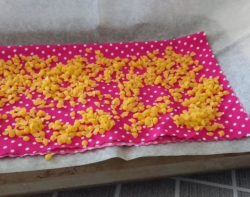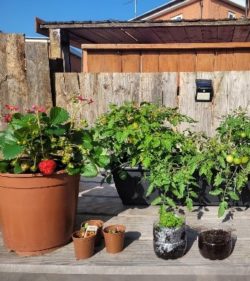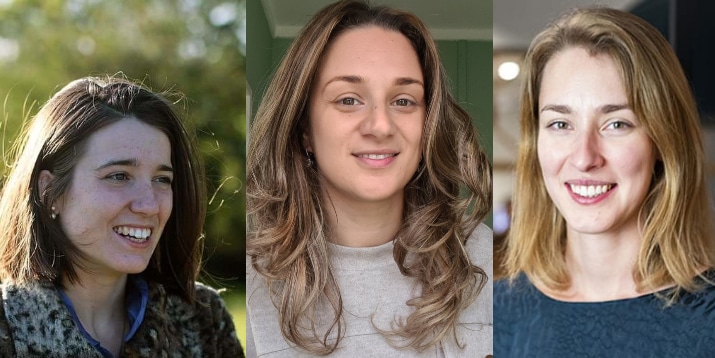Each year, about 400 million tonnes of plastic is produced, and half of that is single-use, such as plastic bags, drinks bottles and crisp packets. Eight million tonnes of plastic waste ends up in our oceans annually, polluting the seas and killing wildlife. According to National Geographic, nearly 700 species are affected by plastics and researchers have predicted that by 2050 there will be more plastic in our oceans than fish.
As part of our green mission, the Compass team took part in Plastic Free July. Led by Molly Hickey, Research Associate and member of our green team, 25 people pledged to complete a variety of challenges, from signing petitions to collecting and recycling litter.
What we did
Some of the most popular challenges involved carrying refillable water bottles, avoiding plastic bags, and raising awareness of plastic use – small changes that can make a big difference.
We also pledged to use beeswax wraps instead of clingfilm, and Molly showed us how to make our own! It turns out that they’re quick and easy to make, and all you need are beeswax pellets and some 100% cotton cloth. The trick is using the right number of pellets: enough that the material is covered, but not so many that it becomes too waxy.
How we did it
Alice Gaillard, our Chief of Staff, had some great ideas: switching to bar soaps, using concentrated cleaning products that come in biodegradable packaging, and sourcing fruit and veg from companies like Oddbox.
Starr Connor, Payroll and HR Coordinator, went one step further by growing her own fruit, veg, and herbs using the bottom of old plastic bottles as containers. She said: “It has been a lot of fun growing my own strawberries, tomatoes, chilli peppers and herbs! I was worried that I wouldn’t be able to do it, but I have learnt that it’s not as hard as you think and a small contribution goes a long way. Oh and also … remember to add holes in the bottom of the bottle for drainage – you must add holes so the water can escape or it will damage the root of the plant and cause it to rot. And I’ve learnt that snails can get anywhere!”

Making beeswax wraps

Starr’s plant pots
Top tips from the team
Molly recommends these resources:
- Plastic-Free Me – a volunteer-led group that are setting up a page to showcase products that they’ve verified as being plastic-free
- rePurpose Global – this website has a model for plastic neutrality and helps you calculate your plastic footprint
- Faith in Nature – a store that sells haircare and skincare products made from organic ingredients, in recycled bottles, that you can refill in one of their many stations across the country
She said: “Plastic Free July isn’t easy! I tried to set challenges that would reassure people that considering the environmental impact of our actions, and making changes to our behaviour, can be routinely and easily implemented. I think our team did really well. The month has also prompted conversations about plastic use and helped people adopt waste-conscious habits.”
Molly added: “We should celebrate every decision that avoids generating plastic waste. What we do here and now shapes the world around us and far beyond.”

“Going green and reducing your use of plastic can seem daunting, but I’ve found it’s all about making small changes that add up and become a way of life.”
Alice Gaillard, Chief of Staff, Compass Pathways

